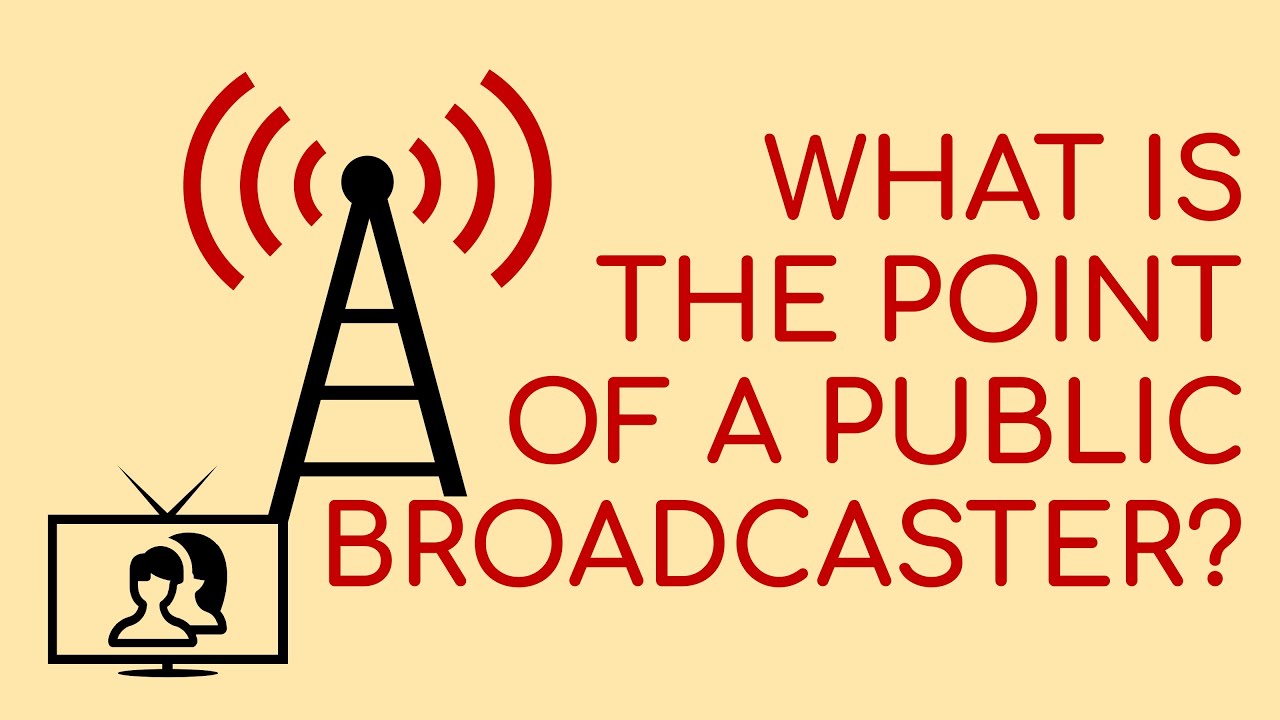The Role Of Public Broadcasting In News And Information Dissemination - Navigating The Challenges Of Public Broadcasting In The Digital Age
The role of public broadcasting in news and information dissemination cannot be overstated. Public broadcasting plays a vital role in promoting democracy, civic engagement, and social cohesion, by providing access to reliable and unbiased news and information.
Apr 10, 2023149.5K Shares1.9M Views

Public broadcasting has played a crucial role in the dissemination of news and information for decades.
With the rise of digital media, social media, and the internet, the role of public broadcasting has become even more important in ensuring that citizens have access to credible and reliable sources of information.
In this article, we will explore The role of public broadcasting in news and information dissemination.
The Role Of Public Broadcasting In News And Information Dissemination
Public broadcasting plays a critical role in the dissemination of news and information. Unlike commercial media outlets that are primarily focused on generating profits, public broadcasting institutions are often funded by the government or other public entities and are responsible for providing unbiased and accurate news and information.
One of the most significant advantages of public broadcasting is its commitment to journalistic standards.
Public broadcasters are held to higher standards of accuracy and impartiality, which is essential in providing a trustworthy source of news and information.
This is especially important in today's era of "fake news" and disinformation, where individuals can easily be misled by inaccurate or biased reporting.
Public broadcasting also has a responsibility to provide comprehensive coverage of important events and issues.
Unlike commercial media, which may prioritize stories based on their "newsworthiness" or entertainment value, public broadcasting institutions often prioritize coverage of issues that are critical to the public interest.
This can include coverage of politics, social issues, and other topics that may not receive as much attention in the commercial media.
The Importance Of Unbiased And Accurate Reporting In Public Broadcasting:
One of the most significant advantages of public broadcasting is its commitment to journalistic standards, which includes providing unbiased and accurate reporting.
Public broadcasters are held to higher standards of accuracy and impartiality, which is essential in providing a trustworthy source of news and information.
This is especially important in today's era of "fake news" and disinformation, where individuals can easily be misled by inaccurate or biased reporting.
In public broadcasting, journalists are required to adhere to strict guidelines to ensure that their reporting is accurate and unbiased.
These guidelines often include principles such as objectivity, balance, and fairness in reporting.
Public broadcasters must strive to present all sides of an issue, rather than promoting a particular political or ideological agenda.
In addition to adhering to these journalistic standards, public broadcasting must also be accountable to the public.
Public broadcasters are often funded by taxpayers or other public entities, which means that they have a responsibility to serve the public interest. This includes providing unbiased and accurate reporting that is free from commercial or political pressures.
The Importance Of Public Broadcasting In News And Information Dissemination
Public broadcasting is a crucial tool in the dissemination of news and information to the public.
Unlike commercial media, which is often driven by the profit motive, public broadcasting is funded by the government or other public entities and therefore has a greater responsibility to provide unbiased and accurate news and information.
Public broadcasting organizations are also held to higher journalistic standards and are expected to provide comprehensive coverage of important events and issues.
Public broadcasting has a key role to play in promoting democracy and civic engagement. By providing access to news and information, public broadcasting enables citizens to make informed decisions and participate in the democratic process.
Public broadcasting also plays a vital role in promoting social cohesion and understanding, by providing a platform for diverse perspectives and voices.
The Challenges Facing Public Broadcasting
Despite the importance of public broadcasting, it faces significant challenges in the digital age. With the rise of social media and the internet, traditional media outlets have been disrupted, and public broadcasting is no exception.
Many public broadcasters have struggled to adapt to the new media landscape, and have faced declining audiences and funding. Additionally, public broadcasting is often subject to political pressures and attacks on its independence.
However, public broadcasting also has some advantages in the digital age.
Unlike commercial media, which is often driven by clicks and views, public broadcasting can prioritize quality over quantity, providing in-depth coverage of important issues.
Public broadcasting can also leverage the power of social media and digital tools to engage with audiences and provide more interactive and personalized experiences.

What is the Point of A Public Broadcaster?
The Role Of Public Broadcasting In Developing Countries
Public broadcasting is especially important in developing countries, where access to reliable and accurate information is often limited.
In many developing countries, private media is often dominated by a few wealthy individuals or companies, who have little interest in promoting democratic values or providing objective news and information.
Public broadcasting can serve as a vital counterbalance to these private media outlets, by providing a platform for diverse voices and perspectives.
Public broadcasting can also play a crucial role in promoting education and literacy in developing countries.
By providing access to educational programming and information, public broadcasting can help to bridge the digital divide and promote learning opportunities for all.
People Also Ask
How Is Public Broadcasting Held To Higher Standards Of Accuracy And Impartiality?
Public broadcasting journalists are required to adhere to strict guidelines such as objectivity, balance, and fairness in reporting, which help ensure accurate and unbiased reporting.
What Is The Responsibility Of Public Broadcasting In Providing Comprehensive Coverage?
Public broadcasting institutions have a responsibility to provide in-depth coverage of issues that are critical to the public interest, including politics, social issues, and events that may not receive as much attention in commercial media.
What Are Some Challenges Facing Public Broadcasting In The Digital Age?
Some challenges include the need to adapt to new technologies and changing audience habits, as well as increasing competition from commercial media and disinformation campaigns on social media.
Conclusion
The role of public broadcasting in news and information dissemination cannot be overstated. Public broadcasting plays a vital role in promoting democracy, civic engagement, and social cohesion, by providing access to reliable and unbiased news and information.
While public broadcasting faces significant challenges in the digital age, it also has some advantages in providing in-depth coverage of important issues.
Public broadcasting is especially important in developing countries, where it can serve as a counterbalance to private media and promote education and literacy.
We must continue to support and strengthen public broadcasting, to ensure that citizens around the world have access to the information they need to make informed decisions and participate in the democratic process.
Jump to
The Role Of Public Broadcasting In News And Information Dissemination
The Importance Of Unbiased And Accurate Reporting In Public Broadcasting:
The Importance Of Public Broadcasting In News And Information Dissemination
The Challenges Facing Public Broadcasting
The Role Of Public Broadcasting In Developing Countries
People Also Ask
Conclusion
Latest Articles
Popular Articles
